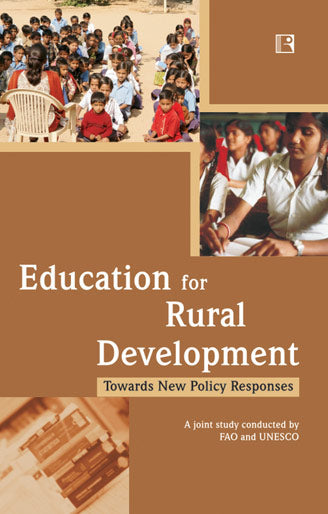Education For Rural Development: Towards New Policy Responses
Education For Rural Development: Towards New Policy Responses is backordered and will ship as soon as it is back in stock.
Couldn't load pickup availability
Genuine Products Guarantee
Genuine Products Guarantee
We guarantee 100% genuine products, and if proven otherwise, we will compensate you with 10 times the product's cost.
Delivery and Shipping
Delivery and Shipping
Products are generally ready for dispatch within 1 day and typically reach you in 3 to 5 days.
Book Details
-
Author: FAO and UNESCO
-
Publisher: Rawat Publications
-
Language: English
-
Edition: 2006
-
ISBN: 813160036X
-
Pages: 408
-
Cover: Hardcover
-
Dimensions: 9.7 x 6.4 x 1.1 inches
-
Sale Territory: India Only
About the Book
More than half of the world’s population and over 70% of the world’s poor are concentrated in rural areas, where hunger, illiteracy, and low school achievement are pervasive. Educating large numbers of people in rural areas is vital for achieving sustainable development. Poverty reduction strategies now emphasize rural development that includes all individuals living in these areas. As technologies evolve and globalization accelerates, education and training have become essential for creating sustainable livelihoods and maintaining the competitiveness of rural economies.
For years, policy-makers and education specialists have focused on practical and occupational agricultural skills training, primarily at secondary and tertiary levels. However, education for rural development requires a more holistic approach that goes beyond the narrow confines of traditional agricultural education and training.
This book challenges conventional thinking and policies that have guided education in rural areas for decades. By incorporating recent information, it reframes educational issues within the broader context of rural development. The book includes contributions that describe current trends and innovations aimed at improving basic education in rural areas. It also addresses skills development challenges and evaluates strategies implemented by higher education institutions to adapt to the evolving educational and rural environment.
The publication advocates placing education and training at the heart of the rural development agenda, positioning it as a critical factor in eradicating extreme poverty and hunger, ensuring sustainable agriculture, and building human capacity for rural development. It serves as a valuable resource for agents of change seeking to advance these goals.





